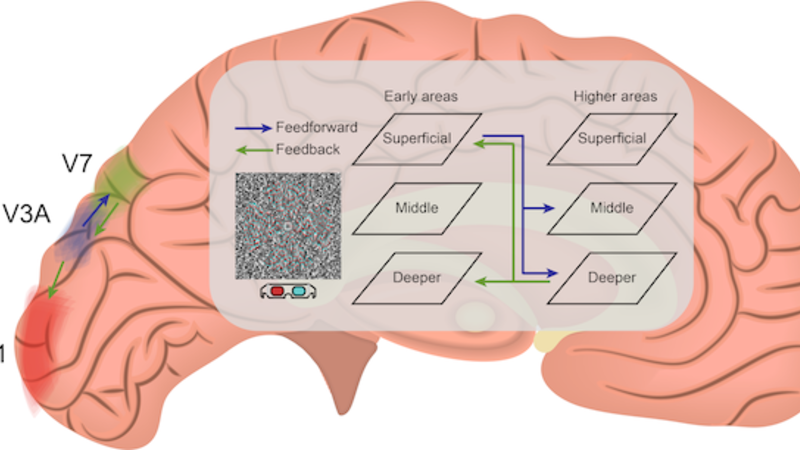Ultra-High-Field Neuroimaging Reveals Fine-Scale Processing for 3D Perception
Binocular vision plays a significant role in supporting our interactions with the surrounding environment. The fine-scale neural mechanisms that underlie the brain’s skill in extracting 3D structure from binocular signals are poorly understood. Here, we capitalize on recent advances in ultra-high-field (UHF) functional imaging to interrogate human brain circuits involved in 3D perception at sub-millimetre resolution. We provide evidence for the role of area V3A as a key nexus for disparity processing that is implicated in feedforward and feedback signals related to the perceptual estimation of 3D structure from binocular signals. These fine-scale measurements help bridge the gap between animal neurophysiology and human fMRI studies investigating cross-scale circuits: from micro-circuits to global brain networks for 3D perception.
https://doi.org/10.1523/JNEUROSCI.0065-21.2021

